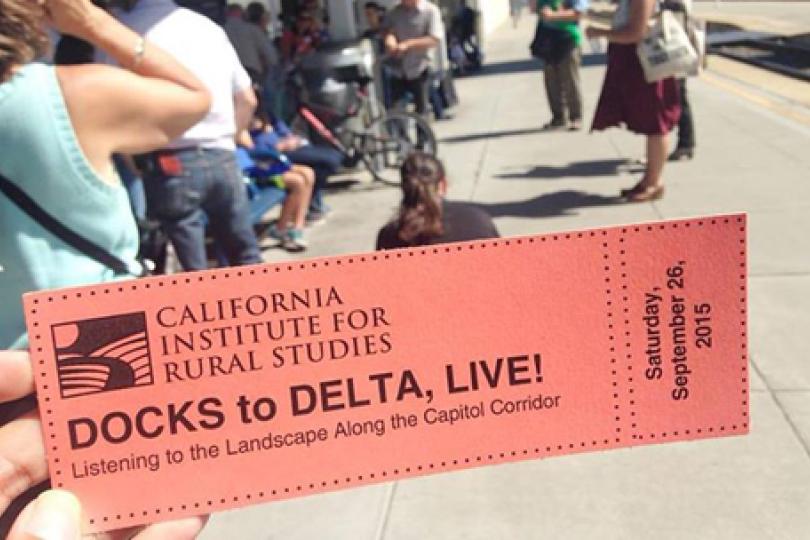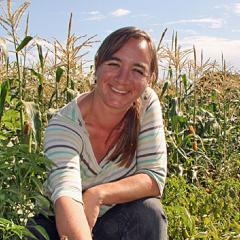Fellow Story
Cal Ag Roots program sparks critical dialogue on California's agricultural system
Editor's note: California Institute for Rural Studies (CIRS) received two years of Switzer Leadership Grant support to launch a new staff position for Ildi Carlisle-Cummins as Director of the Cal Ag Roots program. Cal Ag Roots, created by Ildi, aims to put historical roots under current California food and farming movements by telling the stories of California's agricultural development in innovative, useful, and relevant ways.
In 2016, Cal Ag Roots successfully sparked critical dialogue within California's food movement about three key historical moments that shaped the development of California farming. We did this by:
- Producing and distributing podcasts, and organizing a live storytelling performance, for a wide array of food and farming advocates, scholars, students, and interested citizens. The live performance (which sold out!), called Docks to Delta, took place on the Capitol Corridor Amtrak that runs between Oakland and Sacramento. We produced three stories that were part of the Docks to Delta series, and released them on the Cal Ag Roots Story Hub and on partner social media sites, set up a Cal Ag Roots podcast on iTunes that listeners can subscribe to, and worked with the Capitol Corridor Joint Powers Authority to ensure that all riders of the Capitol Corridor train can listen to the podcasts as they travel through the landscape where the stories took place. We also hosted eight live podcast "listening sessions" which took place in locations across California (Fresno, Merced, Berkeley, Santa Cruz, Sonoma, Seaside, and Pescadero), as well as one in New Mexico. At each of these sessions, we wove narration with audio clips from Cal Ag Roots stories, and then encouraged dialogue with audiences about the current relevance of these histories to food movement work. These sessions often featured one or more of the people interviewed in the story, so audiences could ask questions of the storytellers directly and conversations quickly revealed lessons within the stories for the modern food movement.
- Cal Ag Roots' listenership is multi-generational, including people who participated in the historical moments they discuss as well as young organizers and activists. Using the alternative media channels described above, we know we're educating a wide array of people. It's also clear that our stories are informing policy debates. The production of one of our stories on the water law enforcement efforts of National Land for People in the Westlands Water District, led me to meet with the chief of staff and legislative directors for Congressman Jared Huffman to discuss the possibilities for a 21st century Reclamation Act that would fairly subsidize water resources in the west. This story has sparked other conversations with advocates about immigration policy and the possibilities and dangers inherent in the current H2A guest worker program. After hearing our story (see From Ketchup to California Cuisine on this website) that relates the role of land grant universities in serving the public, an associate dean at UC Davis was emboldened to bring up the subject at the dean's office - and we will be continuing this conversation this fall at the Imagining America conference at UC Davis. We will continue to both encourage and track policy actions that stem from Cal Ag Roots storytelling work.
- Partnering with existing media outlets to further our reach. We partnered with a food movement blog (Civil Eats) and a radio network (Heritage Radio) to bring Cal Ag Roots stories to a wider audience, and published in two traditional newspapers (The Fresno Bee and the Davis Enterprise). We were also featured on several other websites including the UC Davis School of Agriculture and on the Capitol Corridor/Amtrak site.

